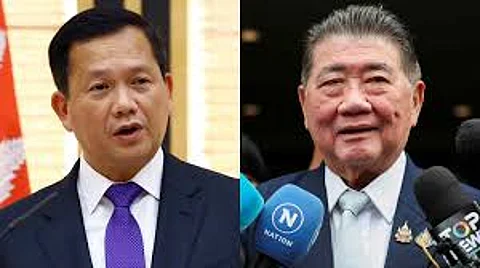

Thai and Cambodian leaders are set to meet on Monday in Kuala Lumpur in an urgent effort to halt the most intense border clashes between the two nations in over a decade. The meeting follows U.S. President Donald Trump’s intervention, where he threatened trade tariffs to pressure both sides into agreeing to a ceasefire.
Thailand’s Acting Prime Minister Phumtham Wechayachai and Cambodian Prime Minister Hun Manet will meet at 3 p.m. local time at the office of Malaysian Prime Minister Anwar Ibrahim, who is hosting the talks in his capacity as ASEAN Chair, according to Thai government spokesperson Jirayu Houngsub.
The United States is also playing an active role, with Secretary of State Marco Rubio confirming that U.S. diplomats are on the ground in Malaysia to support the peace process. “We want this conflict to end as soon as possible,” Rubio told reporters, adding that the State Department is fully engaged in assisting the negotiations.
First Formal Talks: Monday’s discussions mark the first official meeting since hostilities flared on July 24. Trump claimed over the weekend that both leaders had agreed to negotiate a ceasefire after separate phone calls with him.
Trump’s Trade Pressure: On Saturday, Trump warned that the U.S. would suspend trade negotiations with both countries unless they took steps to end the fighting. “We’re not going to make a trade deal unless you settle the war,” he told reporters, adding, “A lot of people killed. And I think they want to settle now.”
Anwar’s Diplomatic Push: Malaysian Prime Minister Anwar Ibrahim helped broker Monday’s talks following a wave of diplomatic outreach on Sunday. Secretary of State Rubio also spoke with both countries’ foreign ministers, urging immediate de-escalation and offering U.S. support for future negotiations.
With Trump’s August 1 tariff deadline approaching, Thailand — highly reliant on trade — is under pressure to resolve the crisis quickly. The U.S. has proposed a steep 36% tariff on Thai exports, which Bangkok is keen to avoid as it negotiates broader trade agreements to address a $46 billion trade surplus with Washington.
Meanwhile, other Southeast Asian nations including Indonesia, Vietnam, and the Philippines have recently signed new trade deals with the U.S., adding urgency to Thailand’s position.
Trump, who previously took credit for calming tensions between India and Pakistan using trade leverage, is employing a similar strategy here. “When all is done, and Peace is at hand, I look forward to concluding our Trading Agreements with both!” he posted on Truth Social.
(This story is published from a syndicated feed)